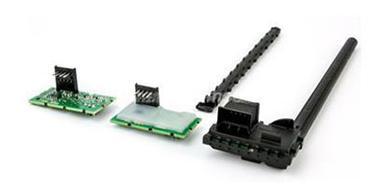

What is Plastic Overmolding?
Plastic overmolding is like giving a toy a super cool armor. It's a process where plastic is molded over another material, creating a strong and durable layer. Imagine your favorite action figure getting a shiny new suit of armor to protect it on its adventures!
The Steps of Overmolding
First, a base material is placed in a mold. Then, a second type of plastic is injected over the base material, forming a layer that sticks to it. Finally, the mold is opened, revealing the newly armored object ready for playtime!
Why Overmold?
Overmolding is important because it adds extra strength, grip, or style to products. Think of a toothbrush with a soft and comfortable handle. That's made possible by overmolding, making everyday items more user-friendly and fun to use.
Insert Molding Adventures
Insert molding is like building a Lego set where some pieces are already in place. It's a cool process that helps create awesome things by adding new parts to existing ones.
The Steps of Insert Molding
Imagine a story about a knight getting its shield. First, the knight's armor is placed in a special mold. Then, hot melted plastic is injected into the mold, covering the armor and forming a shield. Once the plastic cools down, the shield is ready!
Comparing With Overmolding
Insert molding is different from overmolding, just like scooters are different from bikes. While overmolding adds a layer of plastic on top of an existing part, insert molding inserts a new part into the mold before adding plastic. Both processes are super cool and help create unique and useful objects!
The Cool Stuff About Thermoplastics
Imagine if superheroes could change their shapes whenever they wanted. That's kind of what thermoplastics can do! These special materials can be heated up and molded into different shapes, just like clay. But the coolest part is that once they cool down, they stay in that new shape. It's like magic!
Molding Together - The Big Picture
Now that we've explored the exciting worlds of plastic overmolding, insert molding, and thermoplastics, let's take a step back and see how they all fit together in the grand scheme of creating amazing things.
The Process of Creation
Imagine a world where every toy, every gadget, and every tool you use is crafted with care and precision. This world is made possible by the magic of plastic injection molding. It's like having a superpower that allows us to shape plastic into any form we desire.
Bringing Ideas to Life
Plastic overmolding and insert molding play crucial roles in this process. They add layers of functionality and style to our favorite objects, turning a simple toy into a masterpiece or a tool into a work of art. These techniques allow us to combine different materials and colors, creating products that are not only practical but also visually appealing.
The Power of Innovation
By understanding the differences between overmolding and insert molding, we can appreciate the versatility and flexibility they offer. Just like how a knight needs both a sword and a shield to face different challenges, these molding techniques give manufacturers the tools they need to bring their ideas to life.
So, the next time you pick up your favorite toy or use a handy tool, remember that it all starts with a simple idea and a touch of molding magic. Plastic injection molding, plastic overmolding, and insert molding work together to create the world around us, shaping the objects that make our lives easier and more enjoyable.
Can we mold anything into plastic?
While many things can be molded into plastic, not everything is suitable for the process. Objects with intricate shapes or delicate details may not be ideal for molding. However, with the right design and materials, a wide range of items can be created using plastic molding techniques.
Why do we need different molding methods?
Different molding methods, such as plastic overmolding and insert molding, offer unique benefits and are used for specific purposes. For example, overmolding is great for adding a soft grip to tools or creating multi-material products, while insert molding is perfect for incorporating metal components into plastic parts. Each method has its own advantages, allowing manufacturers to create diverse products efficiently and effectively.






 Call us on:
Call us on:  Email Us:
Email Us:  No.23, XingYi Road, Wusha Community, Chang'an Town, Dongguan City, Guangdong Province, China.
No.23, XingYi Road, Wusha Community, Chang'an Town, Dongguan City, Guangdong Province, China.